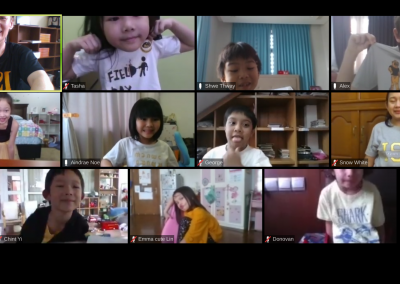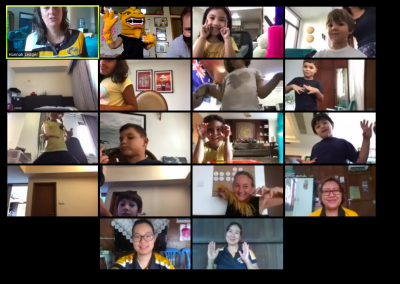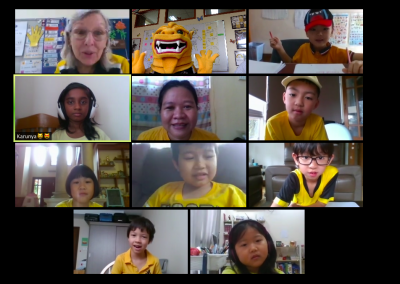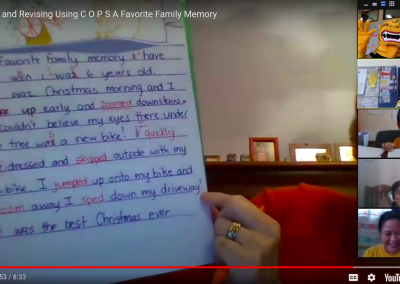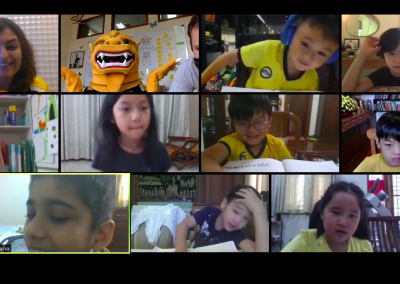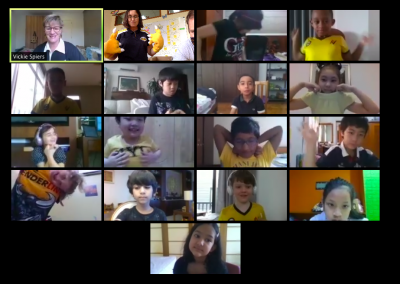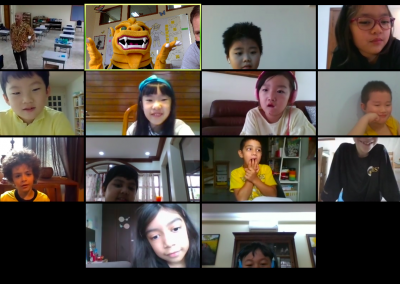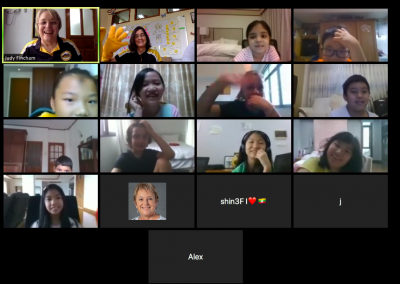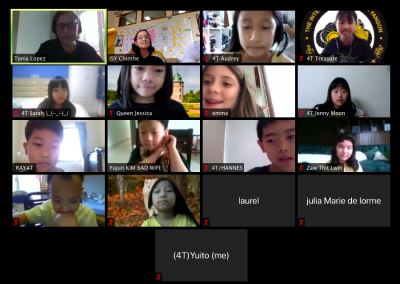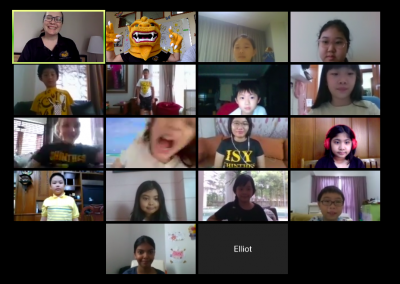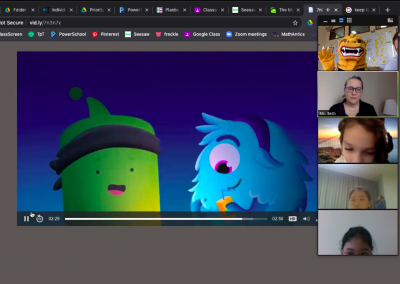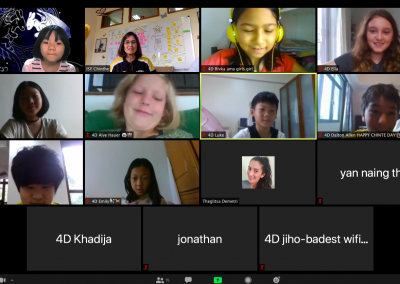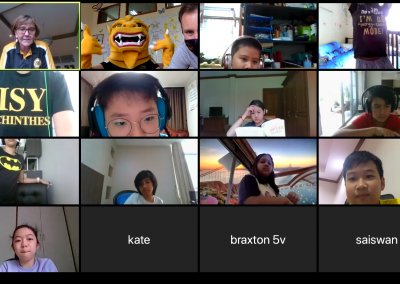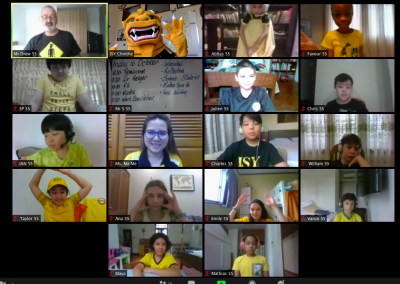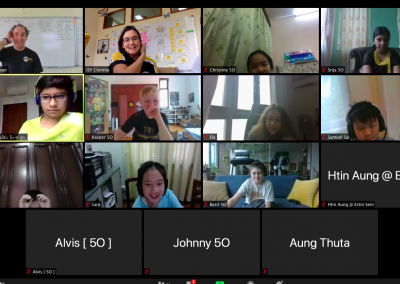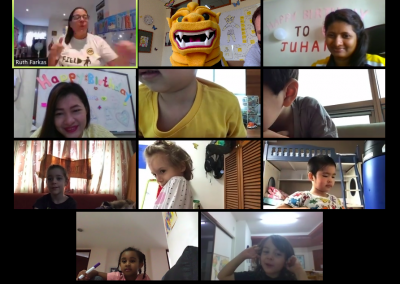ISY Elementary School Faculty Blog
Chinthes Show Their Colors

Mike Simpson
16 October 2020
Chinthe Colors
A Feeling for Fiction: The Power of Stories to Build Compassion
The benefits of reading are many but sometimes I think we focus on the academic benefits and forget about the potential of books, especially fiction, to ‘help train us in the art of being human.’
I was reminded of the power of stories to deepen our humanity and connect us to others by a short essay called ‘A Feeling for Fiction’ published in a book that our ISY Leadership Team is reading, ‘The Compassionate Instinct.’
Children love stories and this shows that they enjoy feeling with other people, even when the feelings are sometimes negative. Whenever we read a story or watch a movie we feel pleased when a well liked character does well or a disliked character struggles. We are displeased when the opposite happens. This a basic process but potentially a very powerful one. This process can transcend the limits of our own culture, identity, perspective, and experiences and connect us to people who are, on the face of it, very different from ourselves.
Children experience stories through their favorite character, usually the main character who is usually the hero. If the main character or hero’s culture, identity, perspective, and/or experience is different to their own, a child is connecting and empathizing with a person who is not like them. To like a character who is not like them exercises a child’s sense of empathy and develops their openness and capacity to understand the culture, identity, perspective, and/or experiences of others in the real world.
At ISY, we are committed to developing compassionate global citizens and we are using stories to do this. Each week, in exploring the idea that ‘we are all connected,’ our Early Elementary students share in a story around which all of their learning revolves. Our teachers have taken great care in selecting stories that represent different cultures, identities, perspectives, and experiences. A student may immediately identify with a character as being ‘like them’ one week and the next week they are identifying and empathizing with a character who, on the face of it, is very different to them.
This is one example of how we are striving to value the cultures, identities, perspectives, and experiences of all of our students and of those of people that our students may never have the opportunity to meet. By extending our students’ understanding of humanity through the stories we expose them to (at all grade levels), we are developing global citizens who will become agents for positive change.
Keltner, Dacher, et al. The Compassionate Instinct: the Science of Human Goodness. W.W. Norton & Co., 2010.
ASSESSMENT, REPORTING & ATTENDANCE
Reporting
Timeline:
- October 23:
- Common Subject Comments Completed.
- Specialist teachers advise Homeroom Teachers if they would like to add to a student’s personalized ISY Learner Attribute comment.
- November 6: Reports completed on Powerschool
- November 13: Reports sent to families on Powerschool
- November 19; Parent Teacher Conferences (No Classes)
Process:
- ES PK/K Progress Report Instructions: Q1 2020-2021
- ES G1-5 Progress Report Instructions: Q1 2020-2021
Running Records:
We are using online Reading A-Z / RAZ Kids Running Records this year. Please use this Elementary Reading Levels (2020-2021) spreadsheet to enter the levels of each student. You may need to add your new students to your class. Linked to this spreadsheet is the ISY Benchmark Reading Levels that you can use as a guide in assessing and reporting on your students.
Assessment
Assessing what a student can do online is challenging. Just before school started, I sat in on some webinars that provided some really sound and practical advice on this. Here are some key ideas that I thought would be useful:
- Use the data that you trust the most – it doesn’t matter if it is summative (a test or final project) or formative (observations, discussion).
- All assessment is formative and it all counts!
- If you are unsure as to whether a student has mastered a skill or understands a concept, ask them to explain it to you. Generally, if a student can explain it, they know it.
That last point is I think important in any context, but especially online. It might mean that you do not have a lot of completed assessment tasks but you can take notes at any time with any discussion you have with a child and if you trust your assessment then those notes are valid evidence of learning – possibly even more so than a finished project or test.
It is important to have a system to record your notes. Our Early Elementary teachers are masters of this if you need any ideas.
Attendance
Esther will keep sending attendance reminders out at 9:30am so she can check in with families early. But don’t worry if you haven’t had the chance to do it by then. The aim to have your attendance completed in the morning as soon as you can. If you have been advised by a family that their child will be absent, please mark them as absent and leave a note on Powerschool to say you have heard from the parents so Esther will not call them. I am not sure how to do this so check in with someone on your team if you are not sure.
We don’t want to introduce a formal Powerschool post-specialist attendance check in. However, if you have a student who is consistently not returning after a specialist class (or missing other classes) and, please reach out to parents with a friendly email…’We missed Milly in the afternoon today…’ Please blind copy Patty and I on those emails just so we know if we need to follow anything up. Parents will often be struggling to keep up with what their children are up to but is important that parents know if their children are missing classes when it comes to reporting on and explaining progress.
PLANNING FOR QUARTER 2: PROSPERITY
Please continue to plan for synchronous learning and we will adapt for Chinthe Learning Online. We will meet on Monday at these times to check in as to where everyone is at and to make sure we are still making connections:
- Monday, 2:00-2:40pm: Grades 2 & 3
- Monday, 2:40-3:15pm: Grades 4 & 5
- Tuesday, 2:30-3:15pm: Grades PK, K, & 1
MINDFULNESS & MOVEMENT BREAKS
To get through this last week before the Thadingyut break, remember to encourage students to move during their breaks and keep integrating mindfulness throughout the day.
HALLOWEEN: Friday, October 23
Grade levels can get together to plan what will work for them but here are some general guidelines:
- Halloween will be celebrated after specialist classes.
- Students will be given time to change into their costumes after specialist classes
- In the lead up to the day, teachers are invited to add Halloween activities that we can all use to this Halloween Folder.
- Think of ways for students in different grade levels to connect.
THADINGYUT: Thursday, October 22
This will be celebrated in the afternoon after specialist classes. Please work within your grade level to come up with a way to celebrate this special day (which is actually on October 31). Team leaders have been given a heads up on this.
Previous Elementary School Posts
Elementary School Faculty Blog – April 23
Parent Teacher Conferences have come at a perfect time to reassure our parents that they are doing a good job and that their children are going to be ok.
Elementary School Faculty Blog – April 9, 2021
Thank you, Delphine. We appreciate all that you have done for us and our school.
Elementary School Faculty Blog – April 2, 2021
Each day this week has seen more emails from families preparing to leave Yangon and we expect that this will continue throughout this quarter.
Elementary School Faculty Blog – March 26, 2021
I have a tremendous amount of respect for you all. It means a lot to be part of this group and I think it will mean even more as time goes on.
Elementary School Faculty Blog – March 19, 2021
We might not feel like experts but today’s assembly was a chance to remind ourselves that we are now good at many things that we did not know how to do at all just a matter of months or weeks or days ago.
Elementary School Faculty Blog – March 12, 2021
The reality of the current situation can make finding the bright side difficult. But research shows that in difficult times, it is important for our mental health to allow ourselves to acknowledge that times are difficult and to feel rather than suppress negative emotions.

